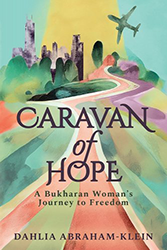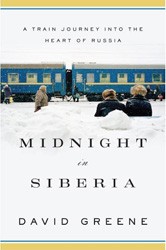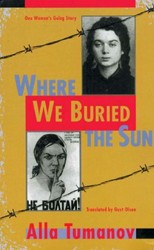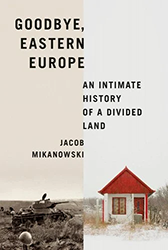In his new young adult graphic memoir, Eugene Yelchin continues looking back at his earlier life in the former Soviet Union. While The Genius Under the Table (2021) chronicled his childhood deprivation with the ironic humor of an adult perspective, I Wish I Didn’t Have to Tell You This tells a more harrowing story.
The book begins when Yevgeny — the child who copied the works of his idols Malevich, Kandinsky, and Chagall — is now a painter and theater designer. He still lives with his mother and grandmother in a tiny apartment, his father having died. Torn by internal conflicts and struggling to build his career under a repressive regime, Yevgeny is simultaneously a sad and heroic figure.
Moral and artistic complexity are the memoir’s core. Yelchin examines his psychological defense mechanisms as he tries to make sense of his love for the city of Leningrad, admiration for Americans, and terrifying vulnerability as a Jew. His mother’s cynicism has been formed by a lifetime subjection to official lies, yet her love for Yevgeny is obvious. His grandmother, “too old to pretend,” offers moments of truth-telling. Mark Baskin, a Jewish friend who responds to antisemitism with an intense commitment to his identity, presents another possible way to survive, although it is not one that Yevgeny can choose. Underlying all is Yelchin’s love letter to the great Russian nineteenth-century novelists, especially his beloved Tolstoy. Like Pierre Bezukhov in War and Peace who is redeemed by his love for Natasha, Yevgeny ultimately falls in love and defeats the physical and moral assaults he has suffered.
Just as a theater designer would contain a drama within a physical space he has created, Yelchin has constructed the book to alternate scenes, characters, and time periods. He achieves a remarkable sense of balance as the reader moves from a two-page map of the Soviet Union bordered by watchtowers to the claustrophobic atmosphere of a clandestine art exhibit in an apartment. Yevgeny meets an American student, Libby, whose dedication to human rights is unflinching, even if her knowledge of Russia is limited. Daydreaming about Libby while reading War and Peace, he envisions her as Natasha, wearing the same dress and pearls as in his portrait of the novelistic heroine. Libby’s oversized eyeglasses and off-center smile are evidence of the overlap between fact and fiction. Yevgeny is no longer the little boy drawing under the table, from Yelchin’s first memoir. Yet he is still nourished by immersion in books. As he tells Natasha on their tour of Leningrad, the city’s stories were both true and imagined: “Which stories were real and which were invented had been mixed up in my head since I had learned to read.”
Being Jewish, but feeling equally connected to his Russian heritage, Yevgeny is torn between imperfect choices. Before his attempted emigration to Israel, his friend Mark croons to a baby son, “We’re off to the Jewish land … where everyone’s a Jew,” offering copies to Yevgeny of his favorite anti-Semites:” Gogol, Turgenev, and Dostoevsky. Yevgeny’s desperate acceptance of a position with a theater company in Siberia, saving him from military service in Afghanistan, results in medical and spiritual torment. The liberation at the end of his journey is partly a testament to human resilience, but also leaves the reader imbued with fear about the human capacity for evil. Tolstoy himself would respect Yelchin’s insistence on telling the truth.
Emily Schneider writes about literature, feminism, and culture for Tablet, The Forward, The Horn Book, and other publications, and writes about children’s books on her blog. She has a Ph.D. in Romance Languages and Literatures.





